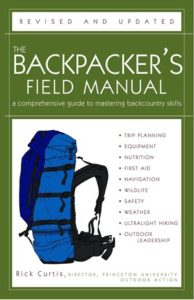GREENFIRE
A recent editorial in Nature argues for more experiential, informal curriculum for students in science classes. The editorial titled: “Learning in the Wild” makes the point that informal learning environments are often much more powerful and longer lasting in transfer than formal classroom curricula. They go on to note: “Indeed, researchers say, the personal and idiosyncratic nature of informal science education is precisely what makes it powerful. The question that plagues classroom science — why is this relevant? — never even arises.”
Experiential methodology is getting a little more attention these days as we learn more about how the brain functions in various learning contexts and states. The Nature editorial cites the 2009 report from the National Academies on how people learn in informal settings which can be found here. The National Academies Press also released a very useful text simply titled How People Learn in 2000 that represents a rigorous scientific approach to the issue and summarizes key findings from neuroscience and related studies. Not surprisingly to those of us who advocate for experiential education, these reports support experiential learning methodologies. It would be well worth your time to read these as it is difficult to find rigorous, evidence-based studies of experiential education from such well-regarded sources (e.g. the National Academy of Science). Here is a short-list of findings from the 2000 report:
1. You must work with and address pre-existing knowledge in learners
2. Active learning is a key component to “meta-cognition”
3. Depth of learning is more important than “superficial coverage” of topics
4. Learning is influenced by context. Therefore, attention must be paid to the social aspects of learning
For those who support experiential education, these findings ought to look and sound familiar. They speak to the heart of the experiential educational philosophy and approach. That our “hunches” are now finding support in empirical science is heartening. Here is hoping there are policy makers, school officials, and “curriculum specialists” out there reading more about the science of learning. In the meantime, for the outdoor and experiential educators out there: take heart because the National Academy of Sciences has got your back!


